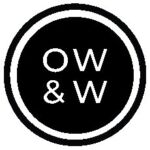Whiskey vs Whisky
what’s in a name
“There is wrong way to spell whiskey. There are only wrong ways to enjoy it.”
With so many whiskey (whisky?) distilleries in the United States, there can definitely be some confusion over the spelling. Even in the same country, within the same spirit type, you may see different brands of whisk(e)y using different spellings such as whiskey vs whisky.
Whether a liquor brand uses an “e” or not has to do with what the origins of that distillery are, personal preference, or possibly even law.
More than likely, you won’t be corrected if you get it wrong, but it is still good to learn the history of why there are two spellings, and which distilleries in which countries will use one spelling over another.
Defining Whiskey vs Whisky
First, let’s get the definition of my favorite spirit out of the way. These are distilled liquors that are made from a fermented mash of cereal grains, and aged in wooden casks.
Related: How is Bourbon Made?
Depending on the type of cereal grains used in the mash, as well as where the liquor is produced, will determine whether an “e” is used- most of the time, anyway.
Scottish vs Irish
The word whisky is derived from the Gaelic usquebaugh which means “water of life.” Oddly enough, spirits seem to derive from the word water (vodka is the diminutive form of the Slavic word voda, for water).
This spelling without the “e” is the traditional spelling, and the “e” does not appear until at least 1879.
In Scotland, whisky is always spelled without an “e”, though the problem is usually avoided entirely by simply being called Scotch. Scotch whisky can only be called such if produced and bottled in Scotland.
Related: Best Whiskey Cocktails for Summer
In Ireland however, the “e” is usually included, making it Irish Whiskey. There is speculation that this was done to distinguish Irish whiskey from its Scottish counterpart, as even the original Irish distillers used the “whisky” spelling. Today, all the distillers from Jameson to Bushmills use the “e.”
Except… Yes, of course the exceptions. Some smaller Irish distilleries never got around to adding the “e” into their labels. One such exception is Paddy, produced in Cork, which used the “whisky” spelling right up until the 1960s.
If your head isn’t already spinning, to make things even more confusing whiskey vs whisky have different plurals: whiskeys and whiskies!
Around the World
Outside of the United States and Ireland, you’ll be hard pressed to find too many distilleries that use the “e” in their spelling.
Japan for example uses the Scottish spelling exclusively, as does India and France. In Germany, there is one example of the Irish spelling: Fränkischer Whiskey
American & Canadian Spirits
When the distilling practices were brought to the Americas, so were the spellings. Those distilleries with Scottish backgrounds used “whisky”, while those with Irish backgrounds preferred “whiskey” on the label.
As a general rule of thumb, in Canada you will find “whisky” while in the United States you will find “whiskey.”
There are always exceptions of course, and it is completely legal in Canada for distilleries to label their spirits with either spelling. For example American distillers George Dickel, Makers Mark, and Old Forester all forgo the “e” on their labels, a nod to their Scottish heritage.
Related: The 11 Health Benefits of Whiskey
Interestingly enough, the Standards of Identify for Distilled Spirits, the legal regulations for spirits sold in the US, uses the “whisky” spelling, most likely because it was based on European regulations.
Meanwhile in Canada, Alberta Rye uses the whiskey spelling, as does Royal Canadian and Mount Royal Light.
So, does Whiskey vs Whisky really Matter?
Some whisk(e)y aficionados (snobs?) may tell you that the spelling matters. To be fair, there is far too much usage of either spelling now to really allow for a distinction to be made in North America.
In general when referencing these spirits, try to use the spelling that the brand uses, and any mistakes will be overlooked.
In the United States, there is no distinguishable difference between American whiskey and whisky. When referring to a group of distilleries that includes Makers Mark, the spelling whiskey is 100% acceptable.
When the whiskey vs whisky spelling really matters is when you’re writing about Scotch Whisky and Irish Whiskey. Using the proper spelling for these spirits at least makes a lot more sense given the historical usage, and the consistency of use in the two countries.
All that should really matter in this whiskey vs whisky debate that the whisk(e)y tastes delicious.
Stay Gold.


